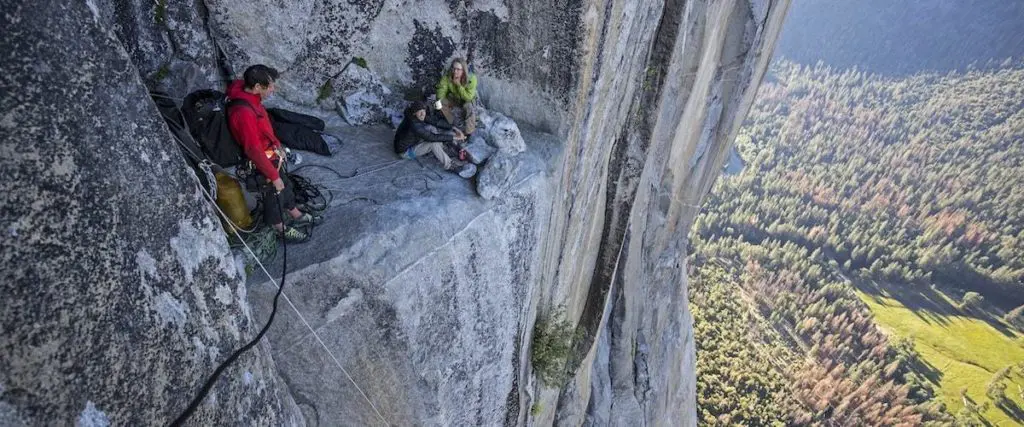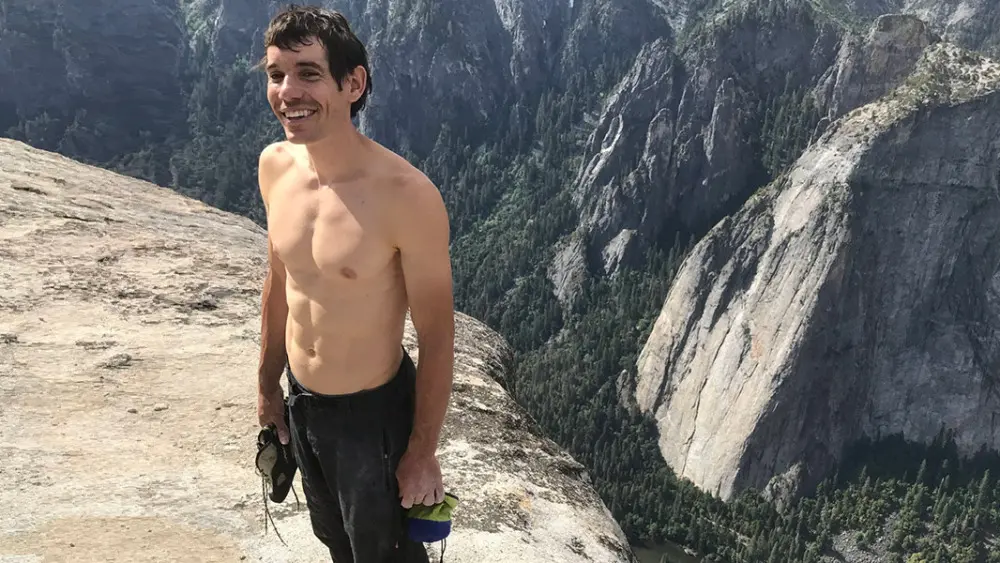Summary
An exhilarating, immersive achievement. Free Solo is simply the best sports documentary ever made if you had to categorize it.
Very few films put you in the thick of it, so to speak, like the new documentary Free Solo from directors Elizabeth Chai Vasarhelyi and Jimmy Chin. You aren’t just treated to some awe-inspiring visuals from above, with wide-angle views that reward the viewer with a weightless feel (this is the team that gave us the Academy Award shortlisted 2015 documentary film Meru after all). They immerse you in the tiniest details. You can feel the dusty rock chalk between their fingers, the trickles of sweat rolling off their foreheads. At the same time, the camera captures the tension of the climber’s fingertips gripping any small crevice they can find to keep the climber from tumbling to their likely demise. If your palms aren’t sweating by the end of the film, you are suffering from an underactive amygdala (more on that later).
Free Solo documents the singular vision of Alex Honnold, a professional rock climber and UC Berkley drop out, best known for performing a series of free solo ascents, who is attempting to be the first to do so climbing El Capitan in Yosemite National Park (known as the most magnificent crack on the planet). Honnold is extraordinarily comfortable within his own skin, has a quiet confidence, and knows what he wants out of life. He has no qualms about living in a van and driving around the country.
He continues to look endlessly for “walls” with long, tall routes that he then tries to climb quickly. Quicker than anyone else. Alex wants to climb without a safety net. He knows this will eventually lead to his death since most free solo climbers have died free soloing by themselves, all passing on in their late 30’s or 40’s. So why worry about the result when you should be living the journey?
Honnold hasn’t had much success with women, saying living in a can doesn’t help. Still, you immediately wonder if that deflection is because what serious relationship can one have with someone who seeks out dangers without a safety net to be happy? The very human element of the film is how concentration is key to any successful climb. Any distraction, no matter how tiny, can have serious consequences. So, when Honnold finally starts to get close to a woman he met in Seattle named Sonya, he coincidentally starts to have more accidents in a short time frame than he has had the previous decade climbing. His friend Tommy explains that you must have armor on when you climb. Nothing can affect your determination and concentration. It appears letting someone in is affecting that singular goal.
He’s a fascinating case study, really, and the film offers extraordinary insight into the mindset. Honnold even wonders if his own brain works properly with his obsession with rock climbing. Yet, it has never caused any anxiety or concern. There is a reason for that; Honnold’s amygdala doesn’t function like normal people. In a feature from Nautilus, they determined that this is the “center of threat response and interpretation system. It receives information on a straight pathway from our senses, which allows us to, for example, step back from an unexpected precipice without a moment’s conscious thought.”

So, basically, when normal people like you and I are in a stressful situation, the racing heartbeat, the sweaty palms that come in a flight or fight response are transmitted by the amygdala. Honnold’s is underactive, not overactive. Knowing that now, we can see why he is so calm in almost any situation, personally or professionally. His demeanor is not an act. He never shows fear because of his own biological makeup; he was literally born to do this.
The film doesn’t explore what it takes to be a champion. It does explore what exactly drives this man. What type of person is needed to be successful at one of the most dangerous sports in the world. Honnold compartmentalizes then rationalizes the solo climb deaths of his fellow friends and professional colleagues. He says life goes on. Just as if he dies climbing, it will be a blip on the screen. “No one will care,” he notes. It’s a cold, almost clinical, but remarkably self-aware assessment of someone who knows someday his greatest passion will kill him. He is remarkably at peace with this.
Free Solo is much more than a sports documentary if you had to classify it that way. Vasarhkyi and Chin’s film is honest and direct, an immersive experience unlike any documentary you have ever seen. It’s a testament to whatever your passion is, whatever your goals are, go ahead, don’t wait, and do it. Alex Honnold has lived more than most have done in a lifetime. He lives by the mantra that life is too short not to do what you love.
Please note, Free Solo has been re-released in Imax 2D this week. If you can help it, seek the film out in that format in theatres. The majestic views of climbing El Capitan are well worth the price of admission (even more so if you have a subscription movie plan like AMC or Sinemia).




